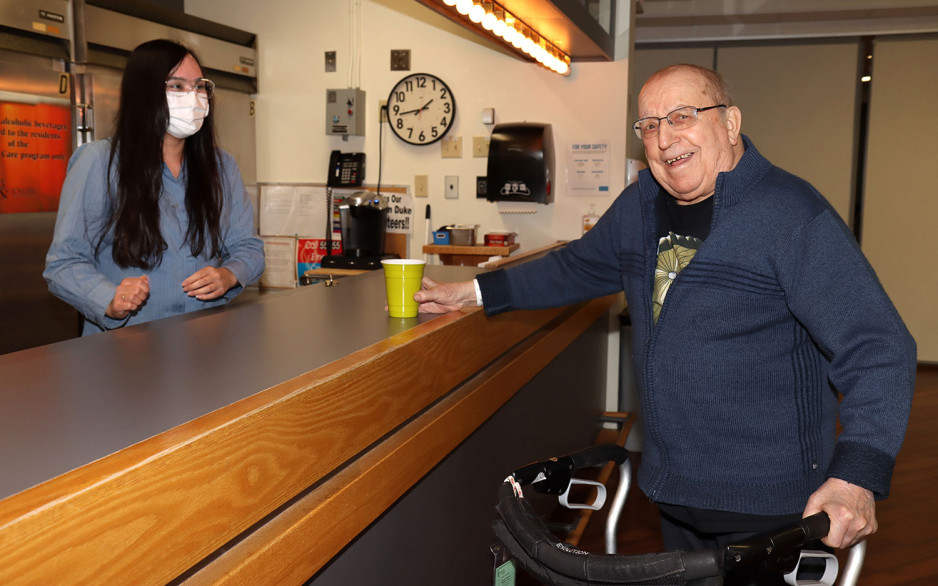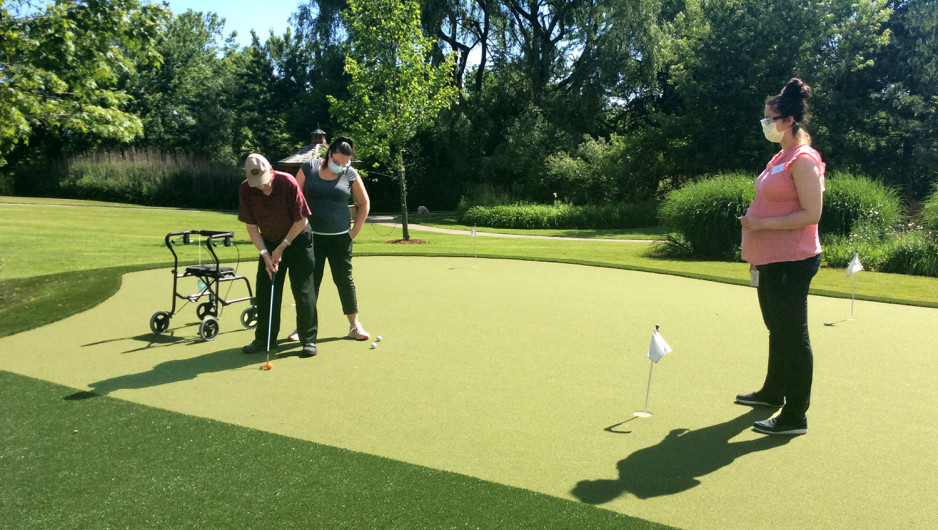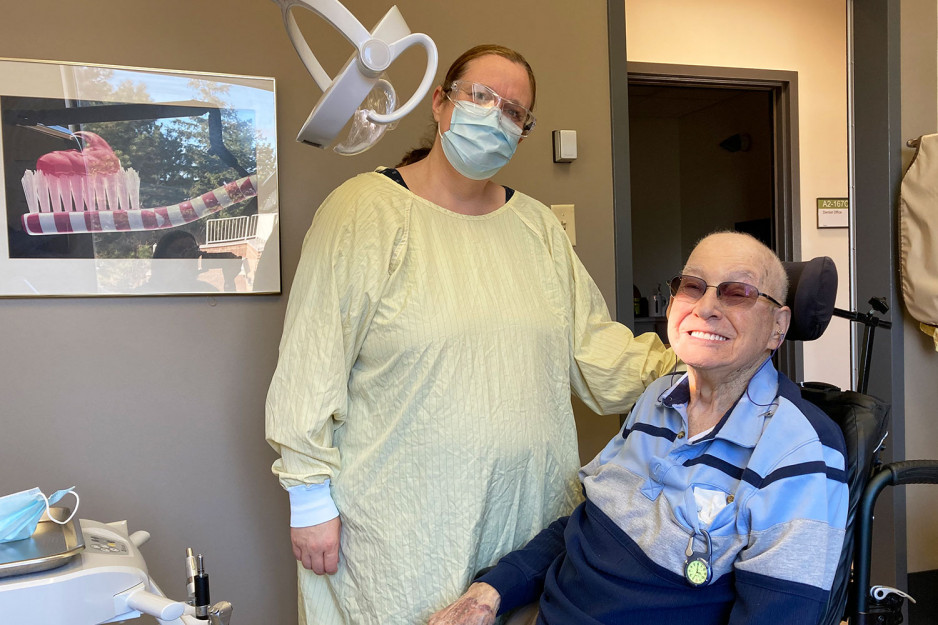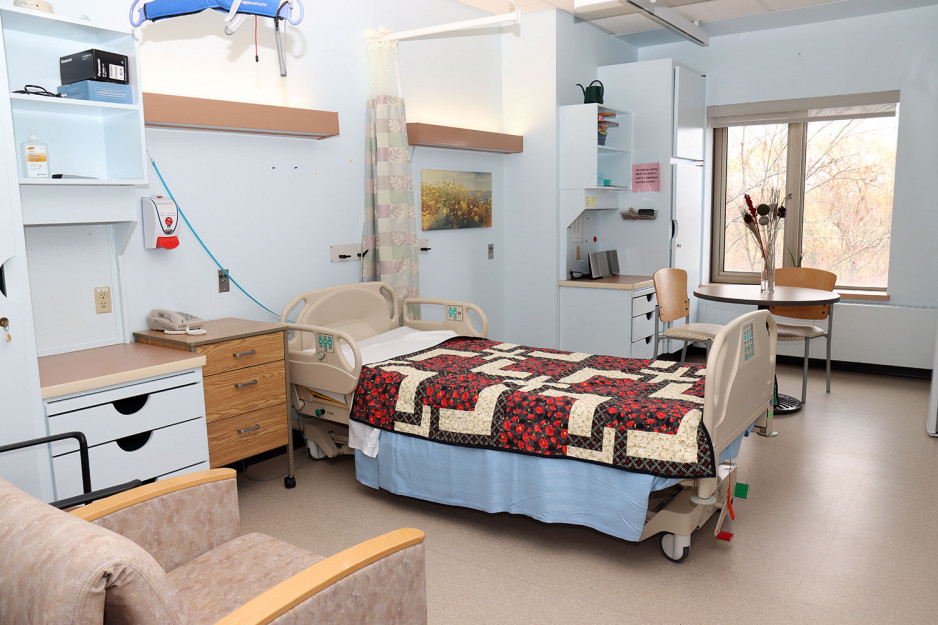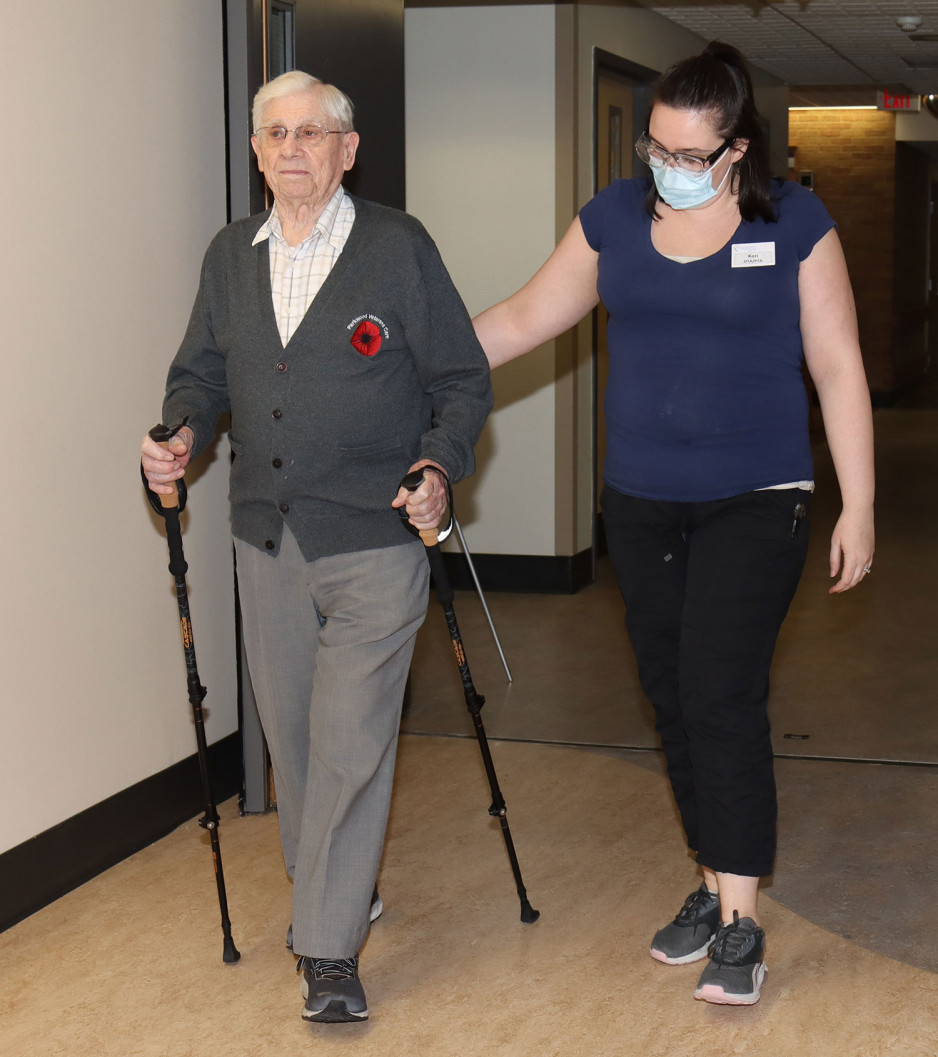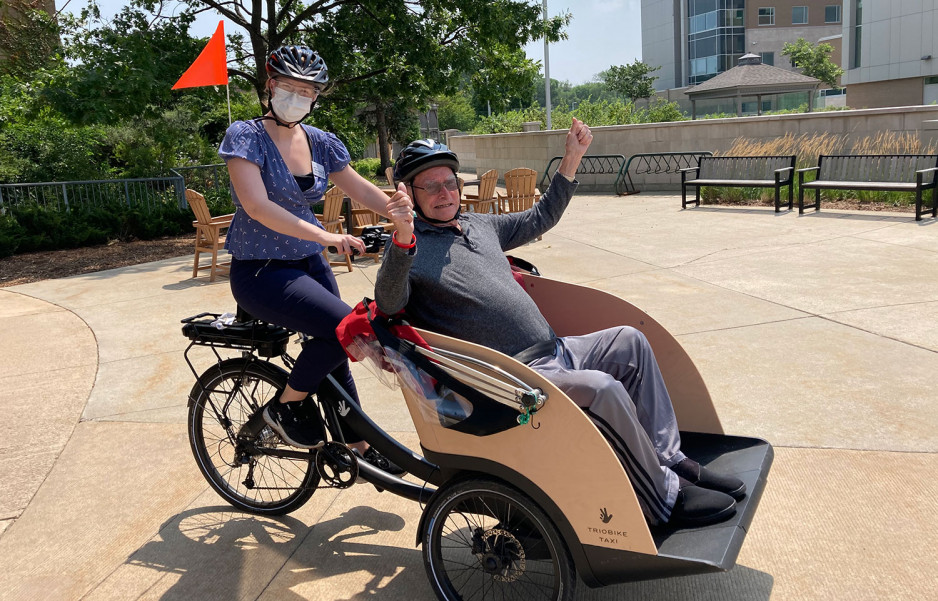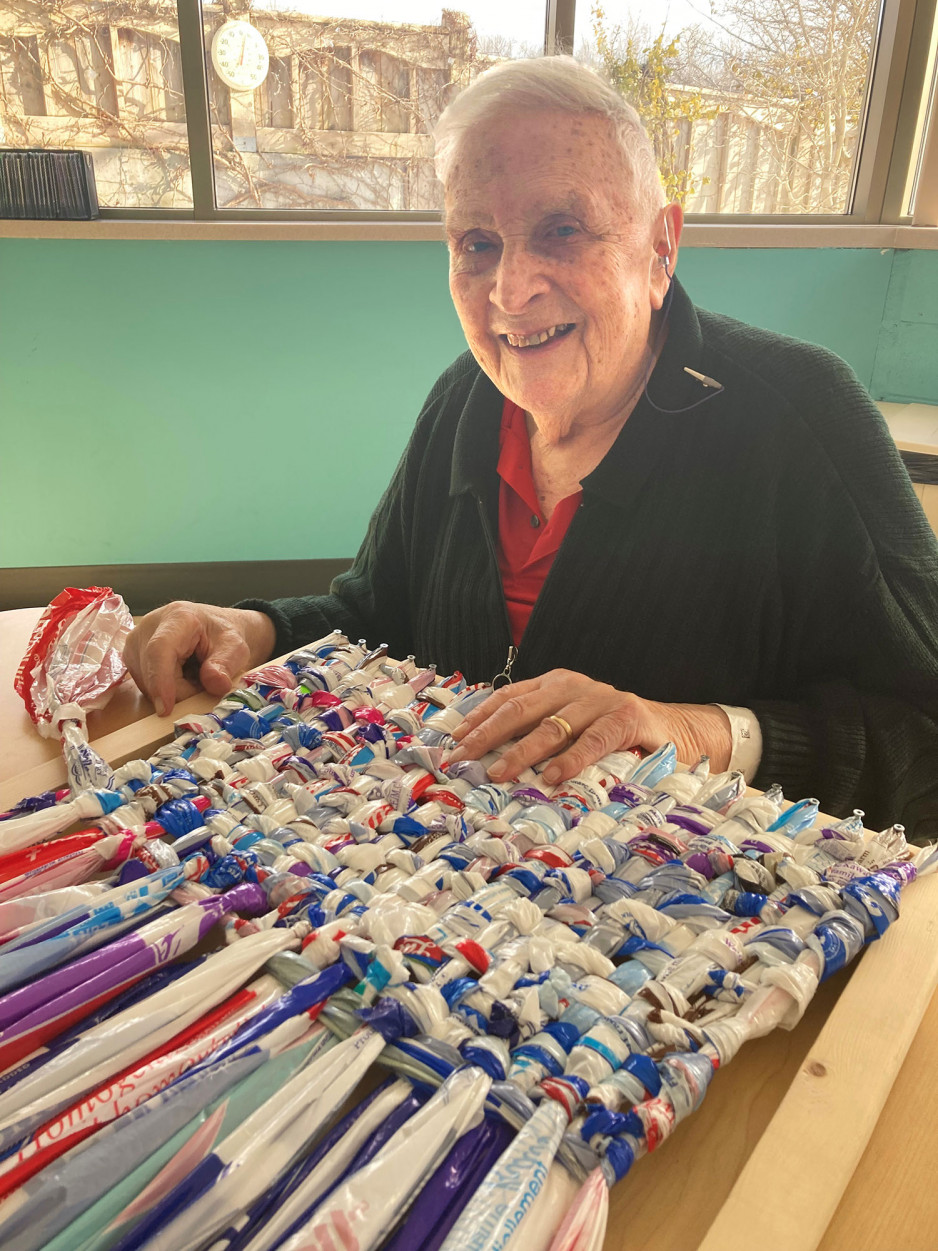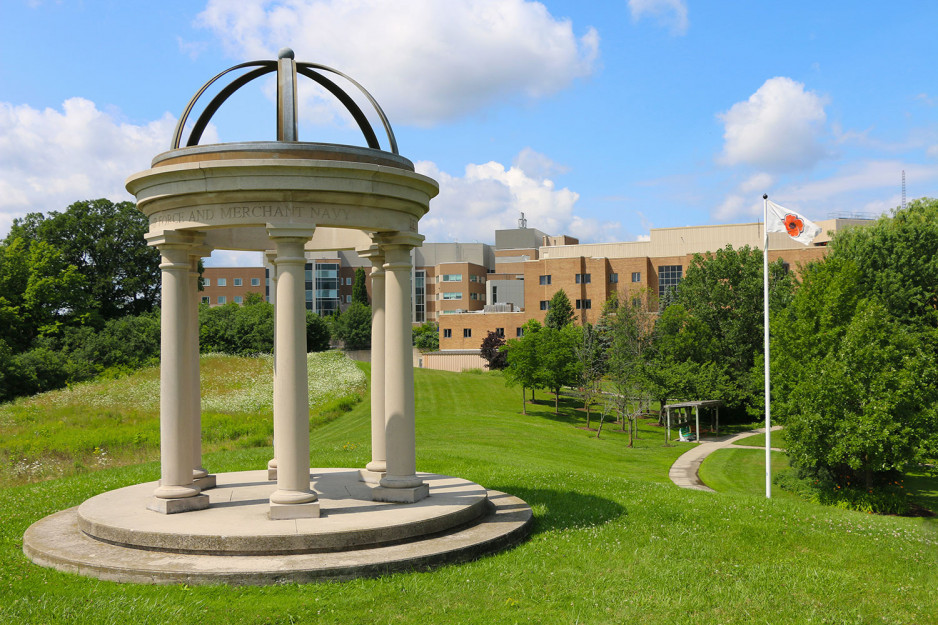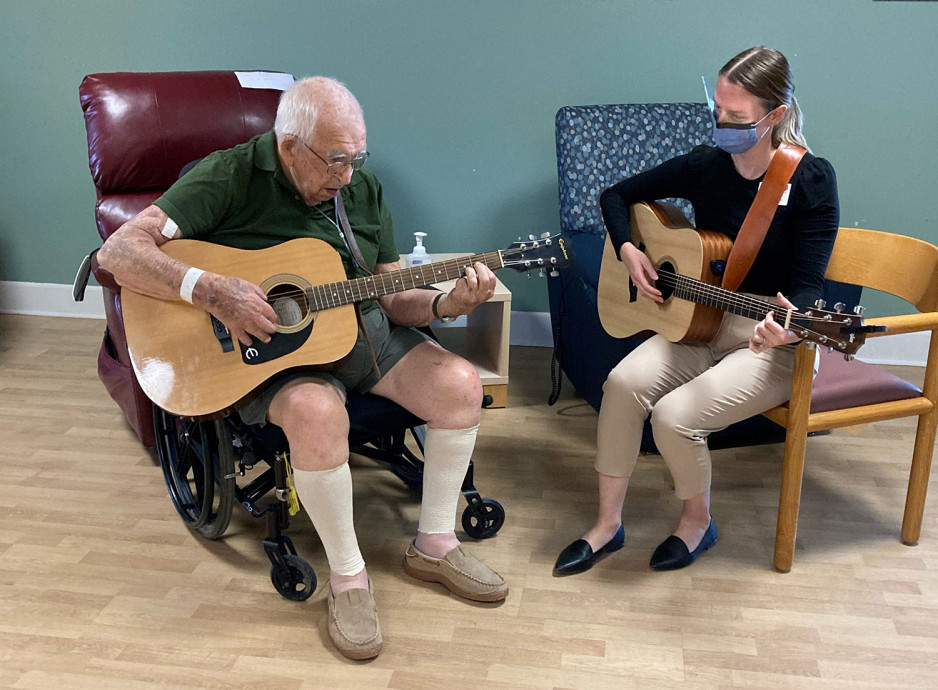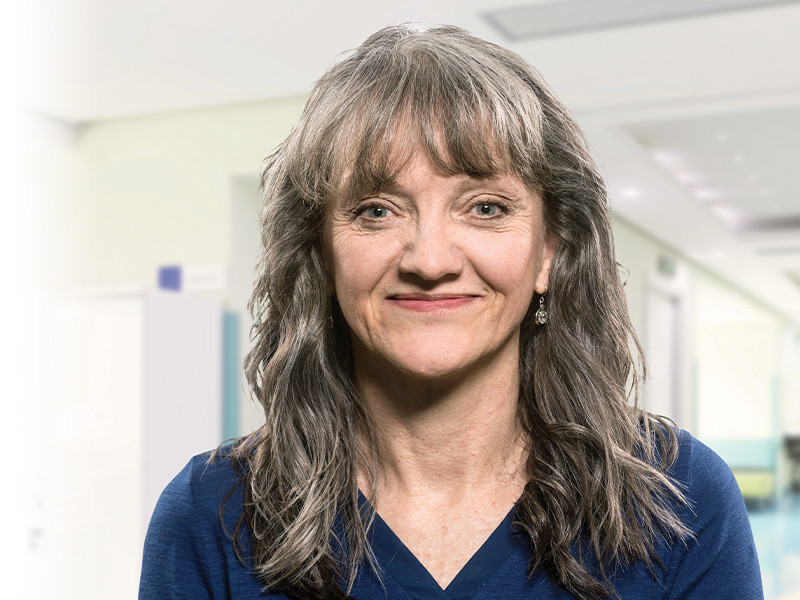Veterans Care - Services
Long-Term Care
Each resident living in the VCP at Parkwood Institute is unique and valued. Parkwood Institute is our residents' home and they are treated with honour and respect. We provide care that focuses on the strengths and abilities of each resident veteran. Our collaborative team approach promotes physical, mental, emotional and social well-being.
All resident veterans live in the Western Counties Wing (Zone E) at Parkwood Institute on one of three units:
2 Perth – this dementia care specialty unit is a secure space located on the second floor. The unit is designed to meet the needs of resident veterans living with moderate to severe dementia. The main hallway of this unit looks like a street, making it feel more homelike. The unit is equipped with a wander alarm system to enhance the safety of our residents.
3 Kent/Essex and 4 Bruce/Elgin – these units are located on the third and fourth floors of the Western Counties Wing. Resident veterans on these units are provided long-term care services with an aging in place philosophy. Aging in place means that residents will continue to remain in the area they live in, even as their care needs change. Resident veterans will live in the unit that will best meet their physical, emotional and social support needs. Our care team works with the resident veterans and their family caregiver(s) to promote their well-being in this shared living environment.
Who can become a resident?
Veterans Affairs Canada determines eligibility of admission for all residents in the Veterans Care Program.
Our residents' home
Each unit has its own dining room, lounges and laundry. Resident veterans and their caregivers may access the on-unit laundry or off-site laundry services provided by London Hospital Linen Services. Meals are often provided in the shared dining room, but are tailored to each resident veteran’s dietary needs. Our facility includes many other amenities for our resident veterans to enjoy such as the:
- Business Office – Safe Keeping Account can be set up
- Chapel of the Good Shepherd – a place for spiritual
reflection, church services - Resident library
- Corner Store and General Store
- Bowling alley – two lane, five pin accessible bowling
organized through the recreation staff - Iron Duke Pub
- Auditorium – for large group events
- Cafeteria – full service cafeteria with Tim Hortons
- Beautiful backyard with a putting green, raised garden beds, and multiple seating areas to observe wildlife
Additional resources available:
(in some cases there are fees for service)
- Dental care
- Hearing test and assessment (Audiology)
- Foot care (Chiropody)
- Optician services
- Barber/Hair Salon
Other features of our environment include:
- Palliative care and comfort room
- Family visiting suite
- Therapy Gym
- Veterans Arts Studio
- Music Therapy Studio
- Wheelchair accessible bus
These amenities provide an atmosphere our resident veterans and their families can enjoy. As well, our team and community partners host many events and celebrations to honour our veterans.
Occupational therapy services
Occupational therapy helps resident veterans improve their independence and quality of life. Occupational therapists (OT) complete a holistic assessment to determine issues that are negatively impacting the resident veteran’s daily life. The OT then works with the resident veteran to set goals to help them regain their independence. The resident veteran may also be helped by an occupational therapy assistant. Occupational therapy can help residents:
- Optimize their mobility through use of wheelchairs and other devices.
- Maintain their independence with pain management such as heat treatment, functional activity through exercise and assistive devices and/or adaptive equipment.
- Prevent and manage pressure injuries with use of specialized surfaces such as mattresses, cushions and orthotics.
- Promote safety through assessment and plans to reduce falls and injuries. This may include use of alarms, improving the set-up of the resident veteran’s room and ensuring they have supportive footwear.
Physiotherapy services
The Veteran’s Care Program physiotherapy team consists of physiotherapists and physiotherapy assistants who support resident veterans in managing and preventing physical problems caused by illness, disease, aging, injury and inactivity. Resident veterans can access physiotherapy services with a referral from their physician or nurse practitioner.
After receiving a referral, the physiotherapists will complete an assessment of the resident veterans needs. They will then work with them to establish goals to enhance their quality of life Therapies to help the resident veteran improve their function may be offered one-on-one or in a group setting.
This may include:
- pain management
- help with improving how to walk
- training on how to us aids such as walkers and canes
- exercises to improve movement, flexibility, heart and lung health
- balance retraining
- strength and endurance training
- group exercise classes focused on overall wellness
Residents’ Council
The Residents’ Council is an independent, self-determining group made up of resident veterans living in the Veterans Care Program. This includes family caregiver representatives for 2 Perth resident veterans. The council is intended and designed to form the collective voice of all resident veterans who reside at Parkwood Institute . All residents and family caregivers have the right to participate in the Residents’ Council.
The Residents’ Council has an elected executive and meets monthly. Items discussed at council meetings may include:
- Sponsoring/planning activities
- Collaborating with community groups
- Reviewing financial documents
- Attempting to resolve disputes
- Providing feedback and recommendations to the VCP team to improve quality of life for residents.
Food Council
Resident’s Food Council is a subcommittee of Residents’ Council and features representation from council as well as independent members and family caregivers. Chaired by Food and Nutrition Services, the group meets monthly to give feedback on past meals, discuss upcoming specials, and review proposed changes. When precaution levels allow, food sampling is often a highlight.
Creative Arts and Therapeutic Recreation
Each care unit has a therapeutic recreation specialist and therapeutic recreation aide dedicated to creating and implementing purposeful recreation and leisure opportunities for the resident veterans. These individual and group programs are designed to meet their physical, cognitive, emotional and social needs.
St. Joseph’s VCP is fortunate to have many recreational resources available including an in-house bowling alley, pub, garden railroad, outdoor golf green, raised garden beds, smart boards and kitchen facilities.
The Veterans Arts program (established in 1946) is fully funded by VAC. Veterans Arts offers veterans a variety of traditional and contemporary art and craft activities in their Textiles, Wood and Clay Studios. On-unit groups are held and one-to one art at the bedside is available.
Many participants choose to make meaningful gifts for friends and family or put their artwork up for sale and receive the profits. Veterans’ artwork is featured in community art exhibits and crafts shows. Intergenerational programming is held with the resident veterans and the Parkwood Children’s Daycare, as well as the Operational Stress Injury Clinic clients and many school and community groups.
Special events
Our team and community partners host various special events throughout the year for our resident veterans. Some of the events are for entertainment purposes, while others, like our Remembrance Day service are to honour our veterans. There are also commemorative displays throughout our building and grounds, such as our cenotaph that serve as reminders of our veterans sacrifices and dedication to us all.
Music therapy
Music therapists provide the skillful use of music and musical elements to promote, maintain and restore mental, physical, emotional and spiritual health. Resident veterans explore music through singing, playing instruments, listening, improvising and movement. Music has nonverbal, creative, structural and emotional qualities. These are used in the therapeutic relationship to facilitate contact, interaction, self-awareness, learning, self-expression, communication and personal development. Music therapy groups and one-on-one sessions are held on all resident veteran units.
Outings
There are frequent community outings to legions, restaurants and special events. Weekday, evening and weekend opportunities are offered for resident veterans to reconnect with previous leisure interests and to develop new interests both on-site an in the community.
